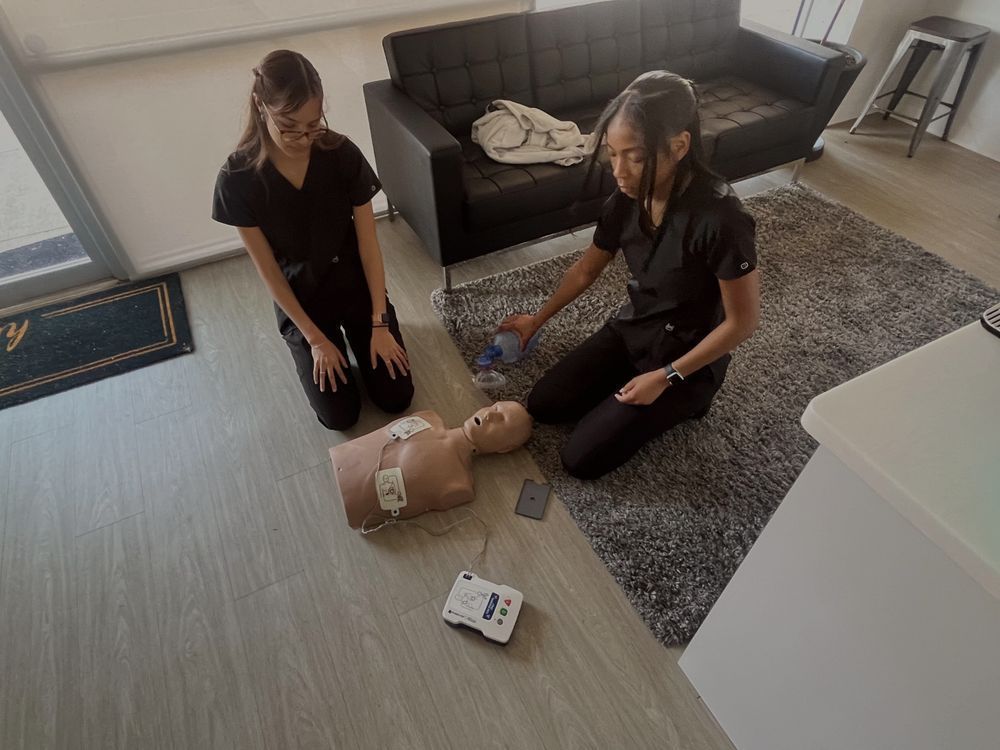Key Medical Terms Every Medical Assistant Should Know
Key Medical Terms Every Medical Assistant Should Know
In the fast-paced world of healthcare, medical assistants are essential team members who support physicians, nurses, and patients alike. One of the most important tools in a medical assistant’s skillset is a strong understanding of medical terminology. Knowing key terms allows medical assistants to communicate accurately, document clearly, and assist confidently with clinical and administrative tasks. It’s more than just memorizing vocabulary—it’s about building fluency in the language of medicine.
Whether you’re preparing to enter a medical assistant training program or already working in the field, learning foundational medical terms is crucial. These words appear frequently in patient records, lab results, and conversations with healthcare providers. Below are 15 essential medical terms every medical assistant should know, including their meanings and how they’re used in real clinical settings.
- Vital Signs
Definition: Key physiological measurements—body temperature, pulse rate, respiration rate, and blood pressure.
Vital signs are often the first data collected during a patient visit. As a medical assistant, you’ll be responsible for recording these numbers accurately to help providers evaluate a patient’s current health status.
- Asepsis
Definition: The absence of bacteria, viruses, and other microorganisms to prevent infection.
Maintaining aseptic technique is essential during clinical procedures like wound dressing or specimen collection. Understanding this concept helps medical assistants reduce the risk of contamination.
- Hypertension
Definition: High blood pressure, typically defined as a reading of 130/80 mmHg or higher.
Hypertension is one of the most common chronic conditions seen in primary care. Medical assistants often measure and report blood pressure, making familiarity with this term vital for patient care.
- Sutures
Definition: Stitches used to close wounds or surgical incisions.
Medical assistants may assist with suture removal or patient education on post-surgical care. Recognizing different types of sutures and understanding wound healing is key to patient safety.
- Specimen
Definition: A sample of tissue, blood, urine, or other body material used for diagnostic testing.
Specimen collection is a routine task for medical assistants. Knowing how to handle, label, and store specimens correctly ensures accurate lab results and compliance with protocols.
- ECG or EKG (Electrocardiogram)
Definition: A test that measures the electrical activity of the heart.
Medical assistants may perform ECGs under physician supervision. Understanding how the test works and what abnormalities might indicate is important for proper procedure and reporting.
- Palpation
Definition: A method of feeling with the hands to examine organs, detect abnormalities, or identify tenderness.
Physicians use palpation during physical exams, and medical assistants should understand the term to anticipate provider needs and document findings correctly.
- BMI (Body Mass Index)
Definition: A calculation based on height and weight used to assess body fat and categorize weight status.
Medical assistants often calculate BMI during wellness visits. It’s an essential metric used in preventive care and patient education related to nutrition and fitness.
- Phlebotomy
Definition: The process of drawing blood from a vein, usually for diagnostic testing.
Many medical assistants are trained in phlebotomy. Knowing the term and technique helps ensure patient comfort, proper procedure, and accurate test results.
- Dosage
Definition: The amount of a drug or medication to be taken at one time or at set intervals.
Medical assistants frequently review medication lists with patients. Understanding how to read dosages helps prevent errors and ensures correct documentation.
- Triage
Definition: The process of determining the priority of patients’ treatments based on the severity of their condition.
While medical assistants don’t typically perform triage in emergency settings, understanding how triage works helps them better coordinate care and schedule appointments effectively.
- Charting
Definition: The act of recording information in a patient’s medical record.
Charting is one of the most frequent administrative responsibilities. Knowing how to document accurately and concisely using proper terminology is essential for legal, clinical, and billing purposes.
- Informed Consent
Definition: A legal process by which a patient agrees to a medical procedure after receiving adequate information.
Medical assistants may provide information about procedures or help obtain signatures. Understanding what informed consent entails protects patient rights and supports ethical care.
- Sterilization
Definition: The complete destruction of all microorganisms on an object or surface.
Medical assistants often handle instruments and prepare exam rooms. Knowledge of sterilization techniques ensures a clean, safe clinical environment.
- Scope of Practice
Definition: The procedures and actions a healthcare professional is legally permitted to perform.
Every medical assistant must understand their scope of practice to avoid overstepping legal boundaries. This helps maintain patient safety and professional integrity.
Find a future in Medical Assisting
Learning medical terminology is one of the most empowering steps for any medical assistant. These terms are the foundation for effective communication, accurate documentation, and competent clinical support. Whether you’re taking vital signs, preparing patients for exams, or documenting health records, having a strong vocabulary helps you work efficiently and confidently.
At Pulse Medical Assistant School, we ensure our students gain not only the hands-on clinical experience needed to thrive but also the technical vocabulary essential to excel in any healthcare setting. Our online-first, 16-week medical assistant program is complemented by intensive, in-person labs—giving you the real-world preparation to help real patients receive real care. Start your journey toward becoming a confident and capable medical assistant with Pulse today.
You're only a few months from the medical assistant career you deserve.
